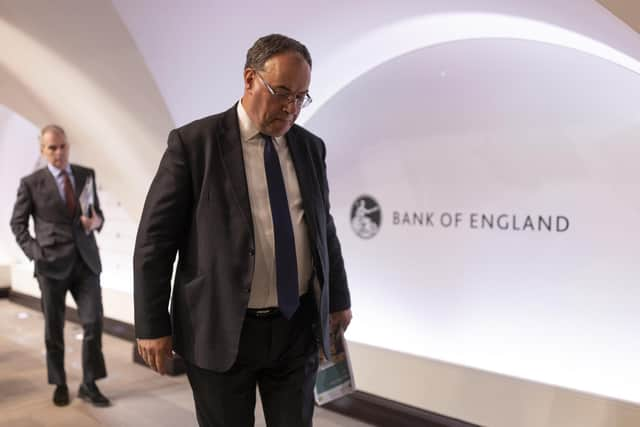'How the Bank of England's MPC is taking action to ensure inflation returns to target'
The MPC judged that a rise in Bank Rate, which followed a rise from 0.10 per cent to 0.25 per cent in December 2021, was necessary to bring inflation back to our 2 per cent target.
Inflation is currently at 5.4 per cent.
The sharp rise in energy prices over the past year is one of the main reasons for this. The price of oil has almost doubled over the past year, and the price of gas is almost five times higher than it was a year ago, bringing higher petrol prices and bigger electricity bills for households, and higher costs for businesses, in Yorkshire and the rest of the UK.


Advertisement
Hide AdAdvertisement
Hide AdThese effects are likely to continue pushing prices up in the coming months, especially when the energy price cap is raised in April. Higher prices for goods that we buy from abroad have also played a big role in the rise in inflation.
Across the world, the pandemic has meant people have been spending more on goods compared with services than they would usually. On top of that, because of shortages of materials, some businesses have struggled to supply certain goods.
Consequently, goods prices have generally risen. For example, I’ve heard from contacts at local car dealerships here in Yorkshire that shortages of computer chips have caused the waiting lists for new cars to lengthen a lot. As a result, the price of second-hand cars that they can supply have risen.
While much of the rise in UK inflation has come from higher energy and goods prices, some upward pressure on businesses’ costs has also been coming from within the UK jobs market. The number of people out of work is going down.
Advertisement
Hide AdAdvertisement
Hide AdBusinesses are coming under a lot of pressure to pay more to get and keep staff. My contacts in consumer leisure-facing businesses in Yorkshire have been reporting particular difficulties in getting enough staff to work in hospitality roles.
This growing evidence of inflationary pressures in the UK economy is why the MPC has decided to raise Bank Rate.
In the latest Monetary Policy Report, the MPC’s forecast put inflation at just over 7 per cent in the spring, then starting to fall back towards our 2 per cent target.
Inflation is expected to be close to 2 per cent in around two years’ time. Energy prices are not expected to continue to rise as fast as they have, and the supply shortages currently causing difficulties for businesses are expected to ease.
Advertisement
Hide AdAdvertisement
Hide AdWith the recovery well underway, the economy doesn’t need as much support, so Bank Rate can be raised. By doing so, the MPC is taking action to ensure inflation returns to target, which will support people’s jobs and incomes over the coming years.
By Alex Golledge - Agent for Bank of England for Yorkshire and The Humber
